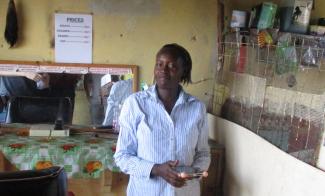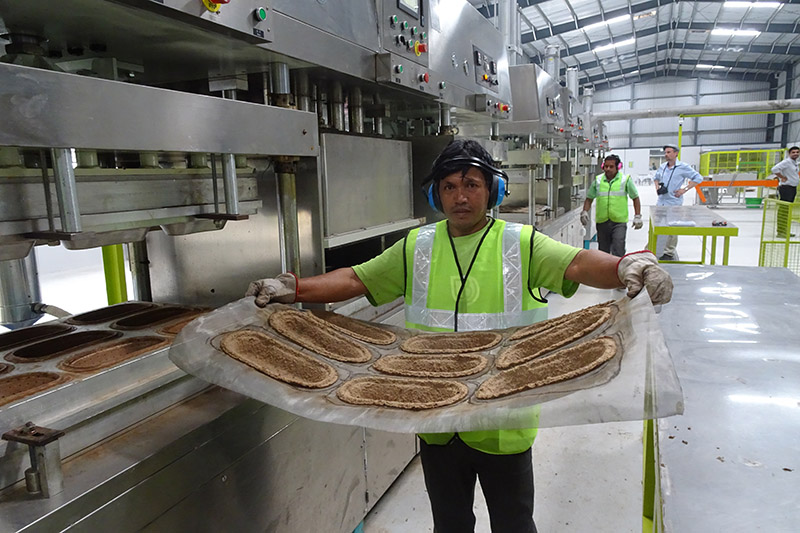Development finance
Developing local supply chains and digital services

DEG is a subsidiary of KfW group with a mission to finance and advise private enterprises in developing countries and emerging markets. It maintains a close dialogue with clients and partners to find solutions that are appropriate for their particular situation and challenge. To measure the developmental impact of the projects it co-finances, DEG has created the Development Effectiveness Rating (DERa). Calculated for every enterprise, it is based on five quantitative and qualitative indicators as criteria for sustainable development. Those indicators are:
- decent jobs,
- local income,
- market and sector development,
- environmental stewardship and
- community benefits.
DEG conducts an annual analysis of each enterprise’s performance on these criteria. This furnishes data that enables it to measure the dynamism of development and progress. DEG can thus show development contributions over years and work with clients specifically on the sustainability criteria (see interview with Christiane Rudolph in D+C/E+Z e-Paper 2020/09, Monitor section).
DEG is currently working in this particularly difficult environment to maintain support for its clients and mitigate the impacts of Covid-19 with specially designed programmes. Those programmes – which are also supported by the Federal Ministry for Economic Cooperation and Development (BMZ) – include health-care schemes and programmes for the continued payment of wages, for example in the textile industry in Bangladesh or Tunisia. DEG also offers liquidity support, helping companies to carry on paying wages or to cushion the impact of similar pressures.
Financing solutions are important for the manufacturing sector regardless of Covid-19. Local value and supply chains need to be further developed. In the service sector, food retailing plays a key role. The Kenyan supermarket chain Naivas, for example, with more than 60 stores and around 6,000 employees, is a major customer for upstream suppliers: more than 90 % of what it sells is purchased locally or within the region. In April 2020, DEG invested in the company to allow it to enlarge its number of stationary stores, expand online services and develop local supply chains. In the wake of that expansion, Naivas aims to create large numbers of jobs.
Also particularly important at present are finance and support for innovative companies engaged in expanding new technologies and, above all, digital networks. Those industries have been drivers of development in Asia and Africa for the past 10 to 15 years. Some developing countries have already invested in relevant infrastructural development, especially for broadband and telecommunications but also for energy.
There is demand for digital financial services in developing countries and emerging markets because very few people there have a bank account or any other form of access to banking services. Thanks to digital technologies, the past decade has seen the emergence of new business models such as “mobile money”, which allows banking transactions to be conducted by mobile phone. Other digital finance products such as loan-processing solutions permit users to use their mobile phone for every step in the process, from offer of credit to approval and repayment. Fintech companies, such as LivFin in India, which is financed by DEG, also reach sole traders who currently have no access to the formal financial sector and rely on moneylenders, who often charge very high interest rates.
Digitised health services are also in demand, for example for early notification of suspected Covid-19 patients – which is particularly important in developing countries because of the limited number of intensive care beds. Penda Health, one of Kenya’s largest private health-care providers, therefore relies on its strong social-media presence. The company increasingly channels coronavirus information and advice through both social media and call centres in order to reach as many people as possible and better manage patient flows in medical-care centres.
Supplying consumer goods to rural communities is another area of business ripe for digital networking. With networked order management and delivery systems, retailers can reduce distribution costs, and farmers and other producers can extend their market reach. Regional online stores such as Copia in Kenya deliver customers’ orders to existing local stores for collection, thus solving the “last mile” problem even in rural areas with no postal services (see interview with Sophia Waweru in the Focus section of D+C/E+Z e-Paper 2019/09). The importance of digital commerce is particularly evident today, in times of the coronavirus pandemic. Copia, for instance, has seen a significant increase in sales.
Industrialised countries that are not among the “early adopters” could follow the example of less developed countries such as Kenya, Tanzania, India and Indonesia, where digital and networked communications are often quickly integrated into operational processes and are already in use as a workaday tool. In developing countries, meanwhile, European investors could prompt greater action on issues such as data and IT security, consumer protection and intellectual property protection. Intensified exchange would thus lead to even better solutions.
Monika Beck is a member of the Management Board of DEG – Deutsche Investitions- und Entwicklungsgesellschaft mbH.
presse@deginvest.de











